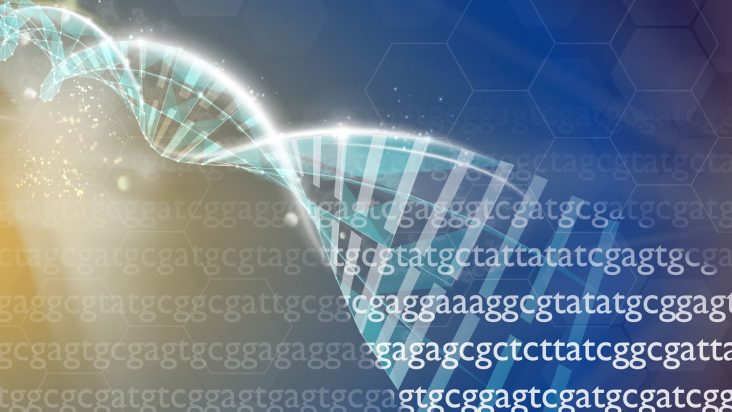AI and supercomputers to be used in animal health research
by April 29, 2024 8:02 pm 327 views

Supercomputers and artificial intelligence aren’t typically associated with animal science, but they are among the tools for a relatively new field of science called bioinformatics that can be used to improve animal health and productivity.
Jumping from human-focused medical research at Yale University and Stanford University, Aranyak Goswami is a bioinformatics specialist who recently became an assistant professor for the Arkansas Agricultural Experiment Station. He will work with three different departments to boost the research arm of the University of Arkansas System Division of Agriculture.
“Artificial intelligence and machine learning are at the forefront of many aspects of animal and poultry production,” said Michael Looper, head of the animal science department. “Dr. Goswami’s expertise in these key areas complements our current research programs in animal health, genetics and well-being.”
Goswami implements data analysis tactics to make sense of data generated from complex research like genetic sequencing. The field known as bioinformatics – or computational biology – links biological data with information storage, distribution and analysis to support many scientific research areas.
Bioinformatics, as related to genetics and genomics, is a scientific subdiscipline that involves using computer technology to collect, store, analyze and disseminate biological data and information such as DNA and amino acid sequences or annotations about those sequences. Scientists and clinicians use databases that organize and index such biological information to increase. understanding of health and disease and, in certain cases, as part of medical care, according to National Human Genome Research Institute.
Use of the term bioinformatics began in the 1970s, based on foundations laid in the 1960s.
Looper said collaborations between the fields of computational biology and animal science will “greatly benefit producers in Arkansas and beyond.” Goswami is already working with Jiangchao Zhao, a professor of animal science, on a collaboration that will study animal microbiomes that regulate digestion, reproduction and infection resistance.
“One of my main interests will be to explore microbiomes to improve cattle and poultry health,” Goswami said. “There are a lot of genomes which are coming out that need to be sequenced, and there are several gaps in this field.”
Genome sequencing is a method used to determine the entire genetic makeup of a specific organism to find comparative changes in the genome. For example, Goswami’s research would examine different gene expression patterns.
“You can study the biological pathways that are activated and those that are not,” Goswami said. “And what are the specific metabolic pathways they are using? And what are their protein interactions? What can we find to make them healthier or improve meat productivity?”
With gut health in mind, Goswami’s analysis will help animal scientists pinpoint a specific class of bacteria or virus affecting an animal to help design probiotics and other therapeutic approaches.
As a computational biologist, Goswami said he wants to apply his experiences in human health research and machine learning to animal health.
“Whatever is exciting in the human field in general is more exciting for the animal field because the genomes are not standardized,” Goswami said. “There is a lot of sequencing that needs to be done and a lot of methods that need to be developed. So that’s a lot of exciting work for a computational biologist.”
Goswami will teach courses through the Dale Bumpers College of Agricultural, Food and Life Sciences. Through the experiment station, he will conduct research in the animal science and poultry science departments and the Center for Agricultural Data Analytics.
“We are thrilled to have Dr. Goswami join our programs here in Bumpers College and the Arkansas Agricultural Experiment Station,” said David Caldwell, head of the poultry science department and director of the Center of Excellence for Poultry Science. “We believe ongoing research in the areas of poultry food safety and disease prevention that involve high-throughput sequencing or omics data will gain significant benefits from Dr. Goswami’s expertise in bioinformatics.”
Goswami said he looks forward to helping develop the Center for Agricultural Data Analytics as a “world-class center in machine learning, statistical learning, and mathematical modeling with respect to agriculture.”
“Most of our students have never had the opportunity to take a course in artificial intelligence,” Looper said. “Through his teaching responsibility, Dr. Goswami also will expose our students to the exciting field of machine learning in the agricultural sciences.”
Bioinformatics is a relatively new field of science, but there is a lot of potential expansion, Goswami said. In 2017, Goswami completed his doctorate in bioinformatics, focusing on microbial ecology, evolution and genomics at the Indian Institute of Chemical Biology under Chitra Dutta in Kolkata. Goswami said Dutta is a pioneer in bioinformatics and computational biology in India, with a theoretical physics and mathematical sciences background.
Goswami has served in postdoctoral positions at Yale University, working with psychiatrists, epidemiologists and physicians focused on cardiovascular, genetics and internal medicine research. His most recent position was as a Stanford University postdoctoral fellow and research scientist.
At Stanford University, Goswami was involved in an initiative known as the “Long-Range Planning Report” to highlight the rights of postdoctoral faculty in aspects such as salary, healthcare, security and career development.
“Our efforts have the potential to catalyze transformative changes in the broader landscape of postdoctoral experiences throughout the United States,” Goswami said.
